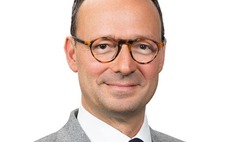
EQT and Baring Asia: Size matters

The significance of EQT’s acquisition of Baring Private Equity Asia is in the strategic machinations of global GPs as much as in the implications for on-the-ground dealmaking
Around 2019, Thomas von Koch, EQT's newly installed Asia chairman, had ambitions to turn the firm's regional franchise into a top-five player by assets under management (AUM) within five years. "It was an insane plan, I thought there's no way that's happening," said one industry advisor who met von Koch at the time.
A year later, the same advisor was told by another EQT executive that the firm was contemplating raising EUR 2bn (USD 2.2bn) for its next Asian fund, more than twice as much as the previous vintage. This was also met with mute disbelief, swiftly followed by rationalization. "I remembered that EQT really likes scale. Even when the firm was smaller, the saying was, ‘If a business line cannot raise USD 1bn, it's dead,'" the advisor recalled.
Those contemplations never crystallized into a formal launch. However, over the course of 2020 and into 2021, various members of the private equity old guard departed, two investment professionals were recruited from Archer Capital to head up Australia and New Zealand, and EQT formally entered Japan, establishing an alliance with local outfit Japan Industrial Partners in the process.
In January 2021, Simon Griffiths, who had been appointed head of regional private equity, told AVCJ that EQT would seek to replicate its global model in Asia. This meant a narrower sector focus, a stronger portfolio support team, and larger equity cheques. There was also, at least initially, a preference for more mature markets.
"We want to grow in the region and really bring the best of EQT to bear in the region, which historically we haven't had the bandwidth and resources to do. In private equity, we are growing in these two new geographies [Japan and Australia], and we are making additions in China and Southeast Asia. We will get to India and South Korea soon," Griffiths said.
EQT's previous Asia strategy – about 25 middle-market investments, an equity cheque sweet spot of USD 50m to USD 100m, and a preference for growth plays in China and Southeast Asia – would be no more. Griffiths pointed to the upper-middle market as a likely target, with investments of USD 100m to USD 300m, and perhaps even higher given EQT's habit of pooling capital from different funds.
"They decided the middle market was no longer interesting and wanted to do big buyouts," said one investment professional familiar with EQT's strategy. "But the multiples are much higher – up to 25x EBITDA versus 13-14x in the mid-market – and you have to wonder whether those are justified by public market comps and historical M&A. And then EQT has no track record in the space."
Taking a shortcut
Last autumn, EQT came upon another way to achieve scale in Asia. Christian Sinding, the firm's CEO and managing partner, sat down for dinner in Europe with Jean Eric Salata, CEO of Baring Private Equity Asia (BPEA). Over the course of six hours, they found a lot of common ground – from strategy and culture to investing and futureproofing.
This culminated in EQT's agreed EUR 6.8bn (USD 7.5bn) acquisition of BPEA, announced earlier this month. "We realised that we would never become – maybe never is a strong word, probably never become – one of the leaders. So, what are the alternatives? These things build upon each other, stone upon stone," Sinding said of the deal.
It marked the start of an eventful fortnight in terms of Asian private equity firm monetisation as PAG filed for a Hong Kong IPO. BPEA and PAG have both previously sold minority stakes in their management entities, to Affiliated Managers Group (AMG) and The Blackstone Group, respectively.
Indeed, BPEA was already exploring monetisation options. According to two sources familiar with the situation, the firm held discussions about the possibility of going public. Plenty of bankers have pitched this to Asian GPs, but the target audience is narrow. Few managers in the region meet all the requirements in terms of track record, fee-generating scale, and business line diversity.
EQT is acquiring 100% of BPEA's management company and entities that control its funds, and it has the right to a share of carried interest from certain existing and all future Asia funds. Salata, BPEA's management team, and AMG will receive EUR 5.3bn in EQT stock and EUR 1.5bn in cash. Salata, assumed to hold a majority interest in BPEA, could end up with a stake in Stockholm-listed EQT not much smaller than the 13.8% interest currently held by the firm's four founders.
"The foundation for any combination is that you have two highly performing organisations coming together. We are bringing together two strong groups with minimal overlap in terms of deals, people, operations, and conflicts. As for culture and the way you set it up for governance, there are lots of things to work through, we've looked at it, and we are confident in how it will operate," said Salata.
"Not to mention, I'm becoming a big shareholder in EQT, so I want to make sure it's a success. There is a tremendous alignment to make it work."
The combined Asia private capital business will be rebranded as BPEA EQT Asia and continue to be led by Salata and his existing senior management team. It will have around 300 professionals across nine offices in the region and invested assets under management (AUM) of more than EUR 20bn across private capital and real assets.
Integration issue?
Salata is widely respected within Asian private equity for turning what was a one-man shop into an institutional platform. Moving to Asia in 1989, he cut his teeth with AIG and was then tapped by ING to lead a regional unit of Baring Private Equity Partners. However, the two colleagues he was supposed to be working with pulled out and ING downsized its commitment significantly, citing the aftereffects of the collapse of Barings Bank and the mounting Asian financial crisis.
Salata recruited a skeleton team, started deploying capital, and then raised a couple of funds. A couple of years later, in 2000, he led a management buyout. Since then, BPEA has emerged as one of Asia's success stories, accumulating USD 17.7bn in fee-paying AUM across private equity, real estate, and credit. Its eighth PE fund, currently in the market, is expected to reach USD 10bn.
Consequently, rival dealmakers are equivocal about what the BPEA-EQT combination means for competition at the top end of the market, although it is suggested that EQT's global platform could offer additional sector and functional expertise.
"Baring is already a formidable competitor in Asia and EQT is not," one manager said. "We will still be going up against the Baring team. It might be different if it were Blackstone and Baring, for example."
Several industry participants flag up the integration risk, noting that PE firms tend to be run by strong-minded individuals who don't necessarily respond well to hierarchical change. Salata, whose shares will be fully unlocked by 2028, will report to Sinding as a divisional head of EQT alongside those responsible for private capital in Europe and North America. BPEA's real estate business will merge with the larger EQT Exeter operation. EQT Infrastructure will continue to function globally.
One common response to the tie-up is that it doesn't make sense for BPEA until you look at the price. AMG bought 15% of the firm at a valuation of USD 1.25bn in 2016. EQT is paying 6x more, although BPEA's fee-paying assets have grown 5x in the past six years.
Asked why he was willing to cede independence, Salata said it was about being part of something "that has a shot at being number one in the world." While BPEA might have aspired to get there on its own, Salata believes that joining with an existing global platform is a more realistic option.
"We've been building scale, operating capability, sector capability, regional coverage capability. The next phase I see coming is the idea of private equity becoming a more global industry," he said. "You need to be a global scale player that has real sector capability, real global insights, access to global talent, and the ability to drive businesses on a global basis."
Global relevance
EQT clearly thinks the same way and is willing to use M&A to get there. The firm had EUR 40.1bn in fee-paying AUM when on listing in 2019, more than double the 2015 total. Now it has EUR 73.4bn across 28 active funds. The firm closed its ninth flagship private equity fund on EUR 15.6bn in 2021 and is said to be targeting EUR 20bn for Fund X.
EQT recruited the founders of UK property player Wainbridge to launch its European real estate business. Exeter Property Group was acquired for USD 1.87bn in 2021, bringing USD 10bn in AUM in North America. Europe-based LSP was added the same year to fill a gap in early-stage healthcare and life sciences, while Bear Logi was acquired in 2022 to expand real estate logistics in Asia.
"We started looking at our businesses," Sinding said. "We had a credit business that was 42nd in the world in size, and we didn't have much competitive advantage. We divested it. This meant we could focus on active ownership, so we decided to scale between venture and private equity into growth. We did that across regions. Then Exeter strengthened our US presence and our real estate strategy."
The firm wanted three geographic pillars as well. Now it has a more significant toehold in Asia through BPEA, EQT plans to roll out other strategies already present in Europe and North America, such as venture capital, life sciences, and long-dated impact.
In this way, the significance of the deal extends beyond Asia. It is emblematic of a broader global trend whereby the largest private markets players are busily expanding their offerings across geographies and strategies. The LP response to some extent captures this context.
One investor with exposure to BPEA in Asia and EQT in Europe describes both firms as "asset gatherers," based on their expansions. Yet some of the intricacies of the deal, such as a redrawing of the Fund VIII carry structure so that 35% of BPEA's cut goes to EQT rather than 100% remaining with the team, don't resonate so much. The crux is that a combined business might be strong.
"It's very easy to be cynical, but private equity is becoming an increasingly global business. Some LPs like backing big global players; others do not," the investor said. "And maybe there is something to be gained from having an external perspective rather than being in the Asian bubble. They might also be able to tell a better story in terms of capabilities if they come in as a truly global player."
Others approach it the other way around. One Hong Kong-based lawyer who has worked on deals involving BPEA argued that nimbleness and flexibility have emerged as differentiating – and clinching – factors for Asia-based private equity firms competing for assets against global players. It raises questions regarding the prospects for more M&A and the number of viable targets.
"Market knowledge and the ability to move quickly are valuable. If that trend continues, you wonder whether more international houses will consider bulking up through acquisition in Asia," the lawyer said. "How will the others react?"
Latest News
Asian GPs slow implementation of ESG policies - survey
Asia-based private equity firms are assigning more dedicated resources to environment, social, and governance (ESG) programmes, but policy changes have slowed in the past 12 months, in part due to concerns raised internally and by LPs, according to a...
Singapore fintech start-up LXA gets $10m seed round
New Enterprise Associates (NEA) has led a USD 10m seed round for Singapore’s LXA, a financial technology start-up launched by a former Asia senior executive at The Blackstone Group.
India's InCred announces $60m round, claims unicorn status
Indian non-bank lender InCred Financial Services said it has received INR 5bn (USD 60m) at a valuation of at least USD 1bn from unnamed investors including “a global private equity fund.”
Insight leads $50m round for Australia's Roller
Insight Partners has led a USD 50m round for Australia’s Roller, a venue management software provider specializing in family fun parks.







